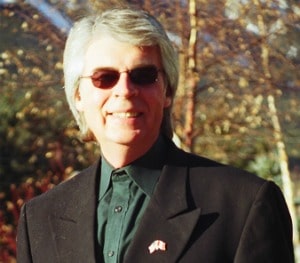
(By Ronald Robinson) A glance at the back lot of almost every radio station will reveal a leaning, dilapidated, tool shed. Bleached-out and rotting, with overgrown roots barring the door better than any Master Lock padlock. What was once a shiny, corrugated metal roof is now rusted and festooned with crow droppings. An annoying clattering in a windstorm is the reminder the thing still stands.
These buildings are empty, save for an extended clan of immigrant rats, the ancestors of which had jumped ship decades before, and made what, for them, was ideal, spacious housing. So far as the vermin know, they are living in Fat City.
Radio does have one contemporary use for these structures. When on-air presenters and copywriters are to be disciplined, they are taken out behind the shed where hickory switches are strenuously applied by PDs wearing black hoods and leather harnesses. Although there was some entertainment value in the exercise, smart-mouth talents were not to be tolerated.
There are unsubstantiated rumors that, up until about 20 years ago, talent had been physically dragged into the sheds to endure full-frontal lobotomies. Anesthetics were considered unnecessary, expensive luxuries, even as the managers were cranking up outmoded equipment powered by sputtering Briggs & Stratton 4-cycle lawnmower engines.
In practical fact, however, the greatest majority of stations are, indeed, sporting empty sheds. Every tool that radio possesses is within reach and already being utilized to its fullest. The problem can be demonstrated with the old adage that radio, treating every problem as a nail, only has access to a few different hammers.
Radio took it a few more steps. Radio made decisions that rendered tools and their usage unnecessary. Radio took journeymen tradespeople, the apprentices, and whatever skills they had developed, and jettisoned them off the top floors or threw them into freeway traffic. Others were openly humiliated or starved out.
It would be easy for an astute reader to assume I was preparing to don my mighty cape and leap up on my soapbox to demand a return to those happier, more creative days of radio “personality” lore. Such is not my position, and besides, those thousands of retro personalities are gone. They have not been stuffed into filing boxes and placed in the dark recesses of the stations’ sheds – to be yanked out and thrown back on the air – in case of emergency.
Radio, instead, has earned its being in this situation where it has brutally maimed itself, and is now unable to respond to contemporary challenges with any vigor or efficiency. I submit there is a form of a “Munchausen’s syndrome by proxy” dynamic afoot in the industry. MSBP is described as a caregiver who makes up or causes an illness or injury in their charges in order to gain sympathy and support for themselves. As such, the abuse of employees, audiences, and advertisers is not only tolerated, it is justified.
I have argued that radio has systematically decimated its potentials to serve and support all three of those groups. Radio has also reinforced the practices by refusing to acknowledge the situation. Further, radio refuses to take any steps to determine, what, if any elements could be applied to correct this tragic circumstance.
Raging industry apologists continue to roar that radio’s reach is still intact, and all that is required to regain its “fair share” of advertising revenue is to get out there and “tell the story.” This position does, indeed, work well for owners and management to retain the practices of gutting their own on-air and creative elements by shifting the responsibility to the sales departments. Even as the sales side attempts to improve its attitudes and techniques, management suspiciously disregards the rest.
Very few are arguing that, with the exception of many strong and creative “personalities” around the country, the largest number making up the base of those presenting on the air or writing copy are banal and annoying.
Although unlikely on a broader level, I insist the opportunity still exists for a portion of radio’s aristocracy — the ones that want to break out — to take the first steps in redefining how radio works and how to work radio. For now, sadly, the tool sheds are still empty.
Ronald T. Robinson has been involved in Canadian radio since the ’60s as a performer, writer, and coach, and has trained and certified as a personal counselor. Contact Ron at [email protected]





